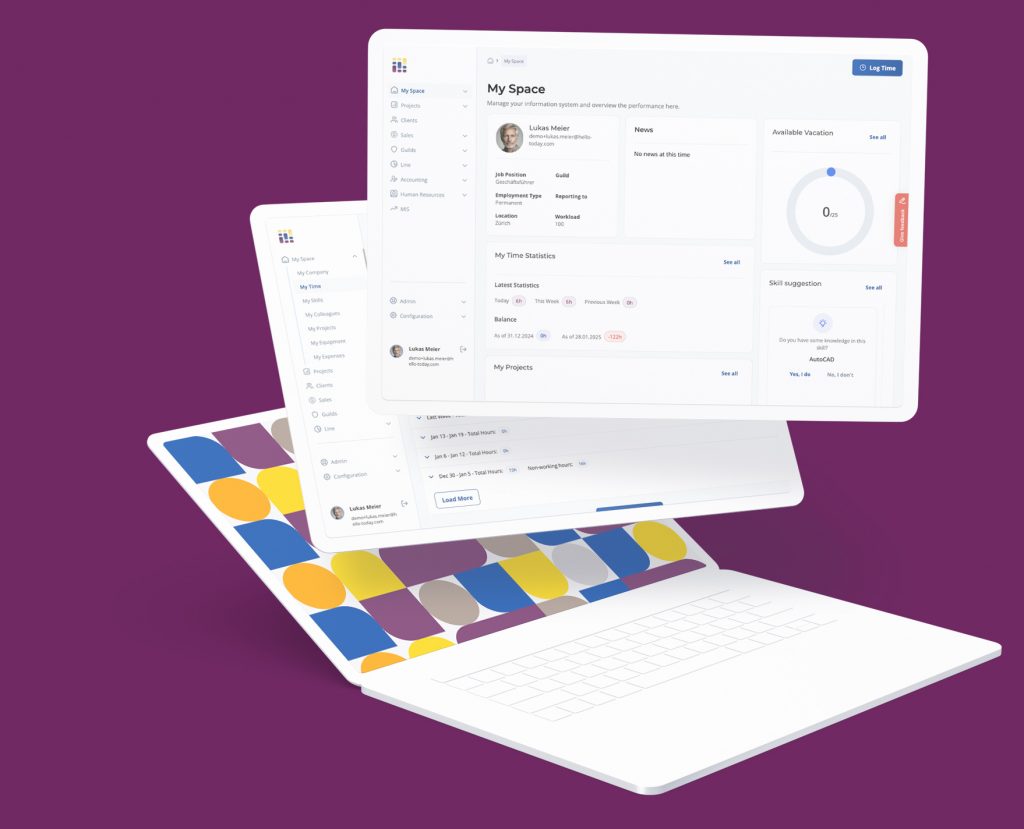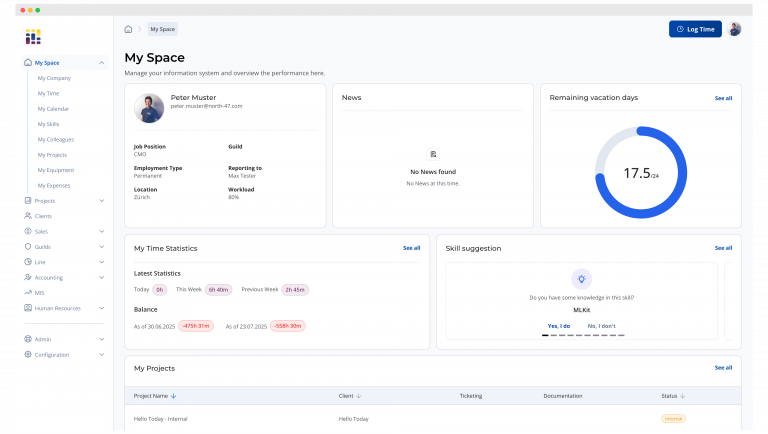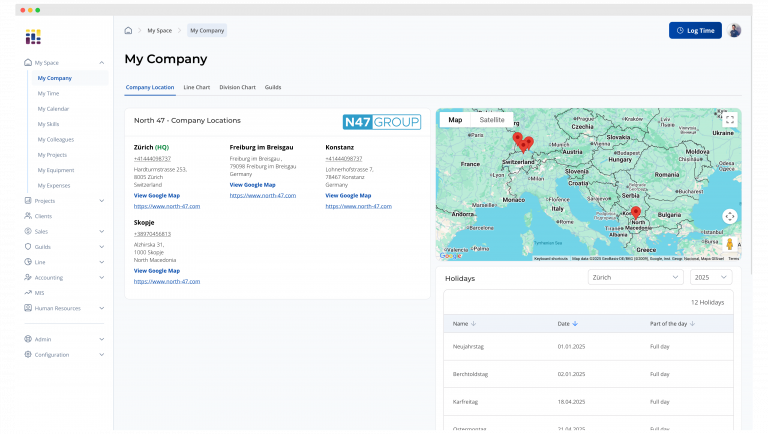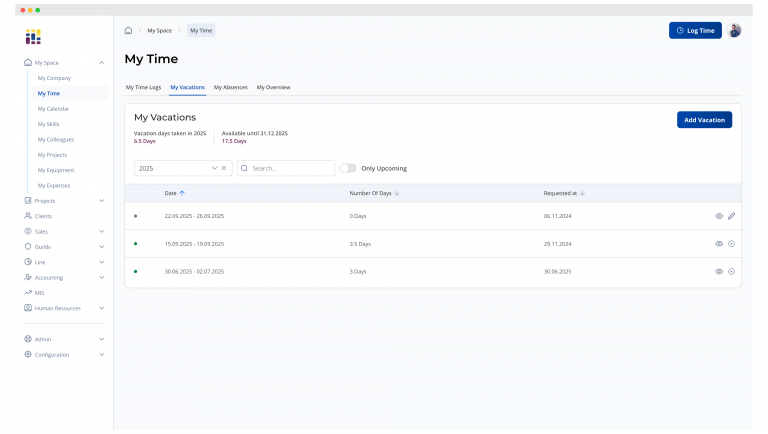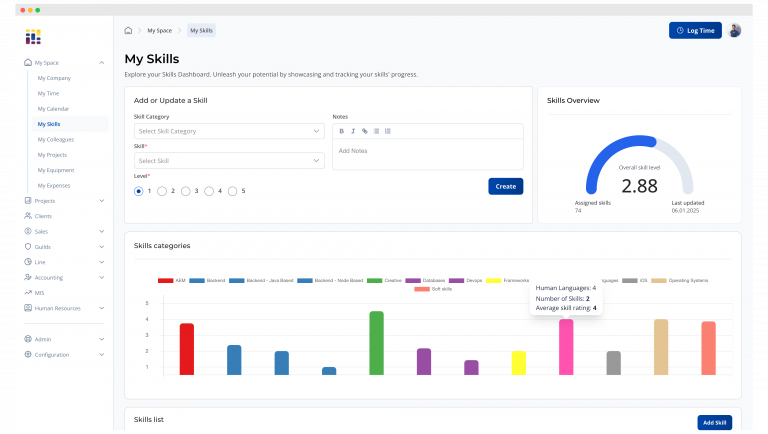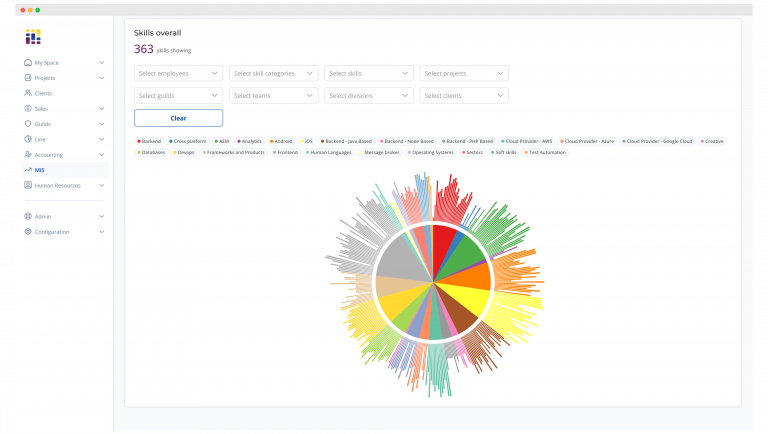High ERP Costs for Inadequate Systems
Traditional ERP solutions are often oversized, complex, and expensive. Designed for manufacturing companies or large enterprises, they do not address the specific needs of service providers. Implementing and customizing these systems ties up significant resources without delivering proportional value.
Managing Across Multiple Systems
Using separate tools for time tracking, project management, resource planning, and customer communication leads to inefficiencies and data silos. Employees must switch between different applications, which costs time and increases the risk of errors. Manually transferring data between systems is labor-intensive and risky.
Loss of Billable Hours
Complicated time tracking processes result in employees either not logging their hours completely or not doing so in a timely manner. This leads to direct revenue losses, inaccurate project billing, and a distorted view of actual resource utilization. Without accurate time tracking, there is no basis for sound calculation and planning.
Lack of Real-Time KPIs
Without meaningful, real-time metrics, the foundation for strategic decision-making is missing. Many companies rely on outdated data or manually compiled reports. This delays response times to issues and hampers proactive business management. The lack of transparency hinders growth and continuous optimization.
